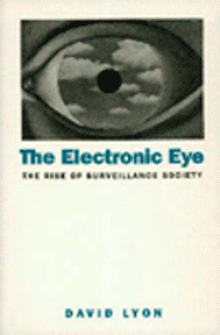
This book situates surveillance in the modern world. Michel Foucault did this classically, cleverly, but his history remained in a pre-electronic era. This book demonstrates that while surveillance is an ancient practice, it alters shape and significance not only with modernity in general but also in specific ways with new computing and communications technologies. The ambiguities of surveillance are explored in administrative, policing, employment and consumer contexts. But surveillance is neither static nor one-way. Modes of resistance, both philosophical and practical, are examined and alternative ways of embracing and confronting surveillance are assessed.